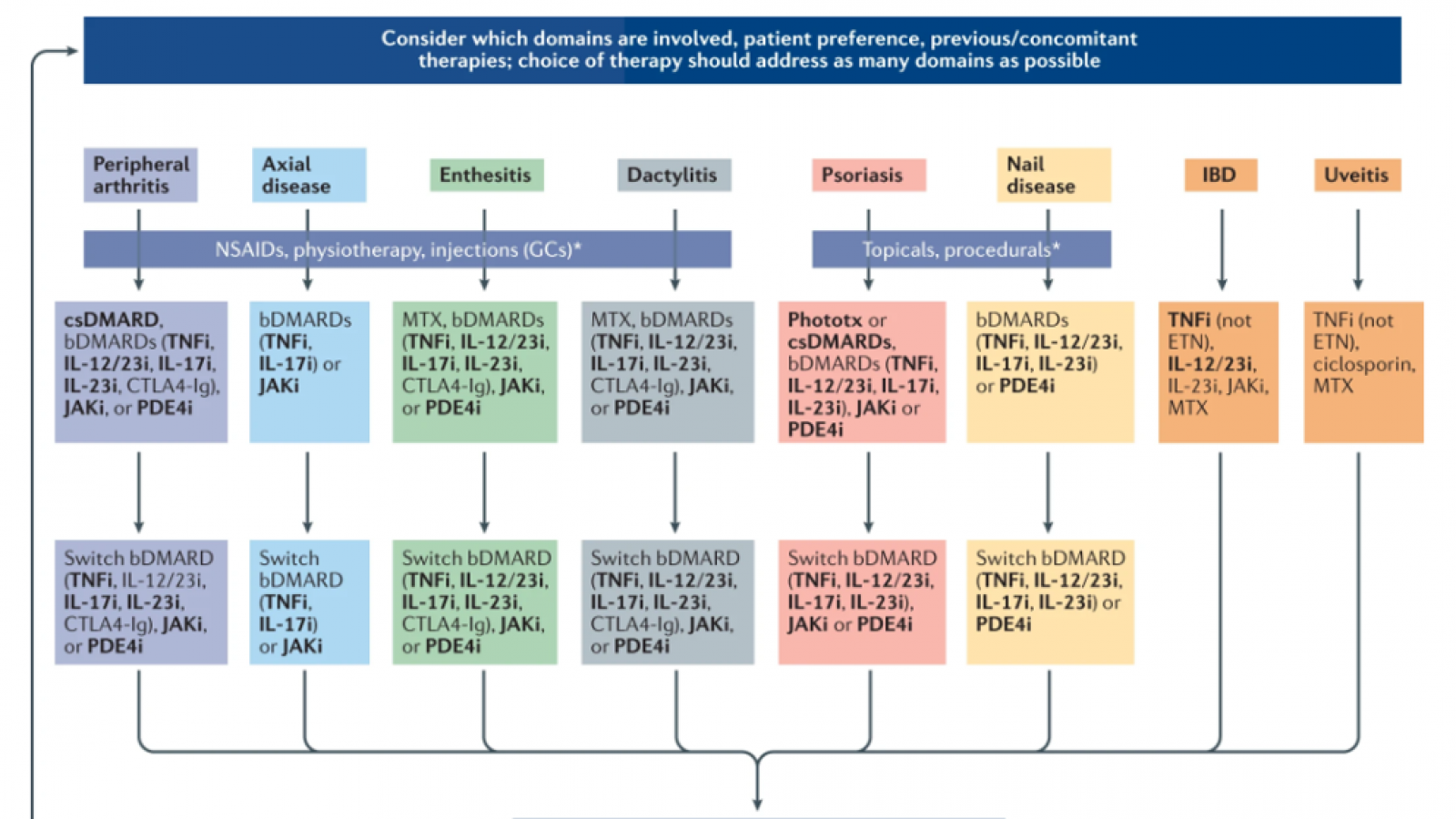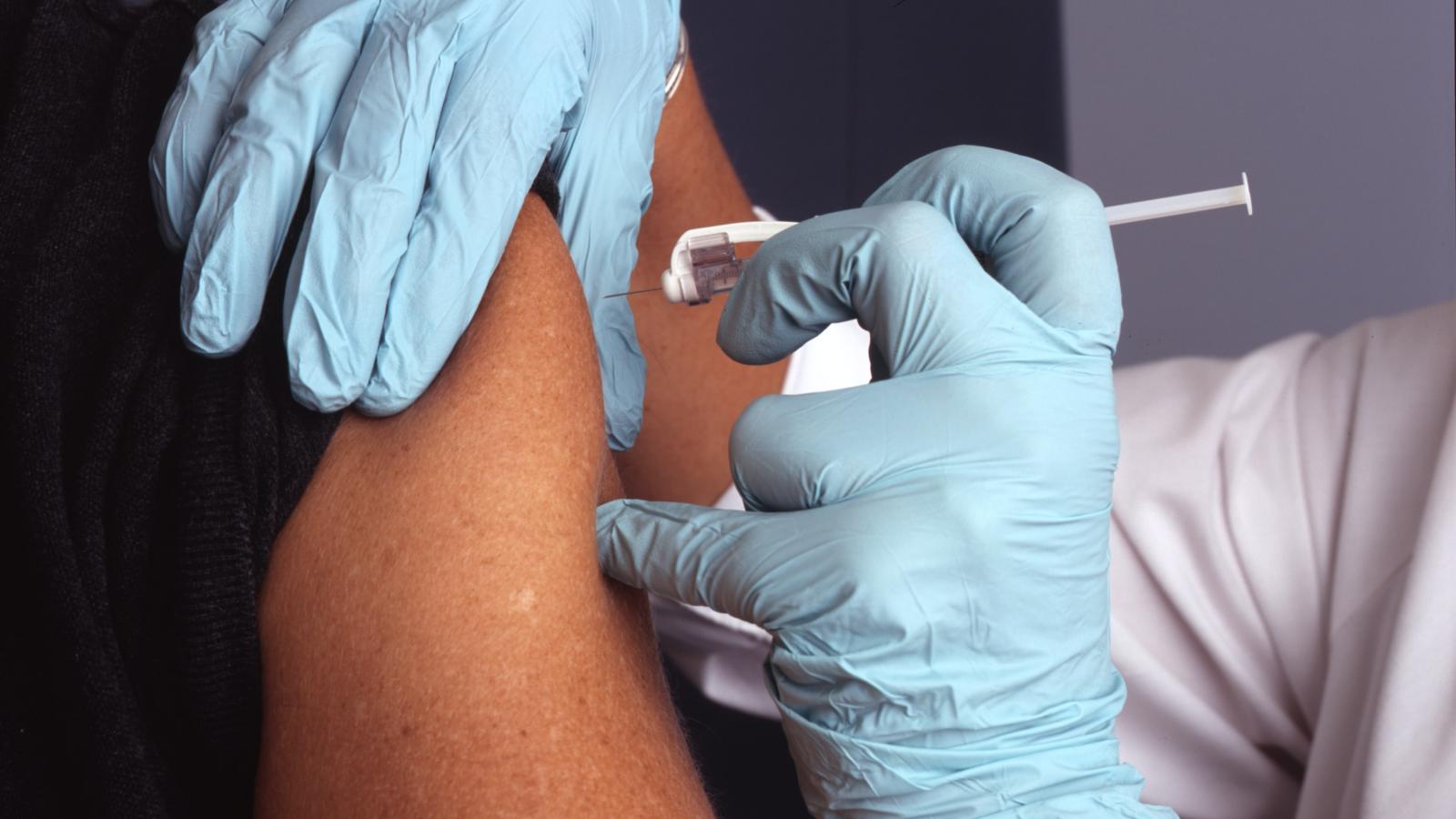JAK/TYK2
For 2022, let's look our top 10 list of advances, game-changers, worries and those better medical practices that evolved during 2021.
With their publication in June 2022 (1), the 3rd iteration of the Group for Assessment of Psoriasis and Psoriatic Arthritis (GRAPPA) Treatment recommendations for Psoriatic Arthritis (PsA) may have set a record or sorts.
Dr. Jack Cush reviews recent news, regulatory and guideline updates from the past week on RheumNow.com. Studies on methotrexate use, COVID vaccination, Supplements and vitamins, and arthrocentesis despite anticoagulation are discussed.
The GRAPPA (Group for Research and Assessment of Psoriasis and Psoriatic Arthritis) treatment recommendations have been updated and the 2021 evidence-based guidance is rich in treatment recommendations based on the key disease "domains" - peripheral arthritis, axial disease, enthesitis, dactylitis, skin and nail psoriasis; with new PsA related domains uveitis and inflammatory bowel disease.
Dr. Jack Cush does a 2-week review of RheumNow Tweets on news and journal citations worth noting, along with some opinions on Telehealth, manpower, monkeypox and the price of drugs.
Although Rheumatology currently ranks 2nd or 3rd in specialty use of telemedicine - the vast majority of rheums have given up on telehealth (<15%) https://t.co/iDNesBkOnN
Clear differences were apparent among the three major types of targeted medications for rheumatoid arthritis (RA) in a large European registry study.
Pyoderma gangrenosum (PG) is rare, but often associated with different forms of arthritis, in particular rheumatoid arthritis and inflammatory bowel diseases.
Insurance claims analysis has shown that the use of the (CDC recommended) recombinant zoster vaccine (RZV) for prevention of herpes zoster was highly used in patients with immune-mediated inflammatory diseases and was safe, as higher rates of arthritis flares were not evident.
There are still questions surrounding COVID-19, and some common questions I receive from patients revolve around what to do with their current DMARDs or should they even start treatment during this pandemic. Two studies focused on this question.
The American College of Rheumatology applauds the Federal Trade Commission’s decision to investigate the business practices of pharmacy benefit managers (PBMs), which continue to increase PBM profit margins while placing the burden of skyrocketing drug costs on America’s most vulnerable patients, including those living with chronic and severe rheumatic diseases.
What can we learn from Oral Surveillance?
The Oral Surveillance trial has almost become a household word for rheumatologists.
At the onset of the pandemic, data from the Global Rheumatology Alliance reported increased risk of poor severe COVID outcomes including deaths in patients who were treated with rituximab and baricitinib. With the vaccination program undertaken globally, has this risk been attenuated?
The British Society of Rheumatology has published their updated 2022 recommendations for the use of biologics and targeted synthetic treatments in patients with psoriatic arthritis. These guidelines follow initial treatment with a single conventional systemic disease-modifying anti-rheumatic drug, typically methotrexate typically. They noted that up to 50% of people with PsA require biologic or targeted synthetic (b/ts)DMARD therapy.
Impressive data on novel treatment for SLE were presented at the EULAR22 Congress. A disease that is difficult to study due to its pleomorphic presentation, unpredictable disease course, and high mortality rates, SLE is considered the dragon of all autoimmune diseases. Here are highlights of four exciting abstracts presented at the meeting with emerging therapeutics designed to slay the beast.
Bags are packed, ready to go, but wait there’s more abstracts to show.
The big news today were the “late breaking” abstracts. This is usually a favorite session of many as this is where the newest of study data often is showcased.
Here are my favorite late-breakers from Day 4.
























 Poster Hall
Poster Hall